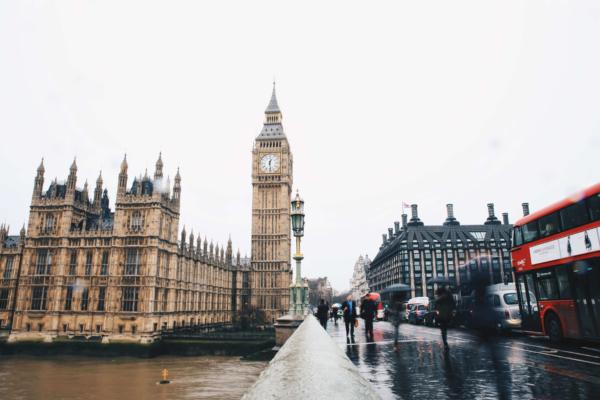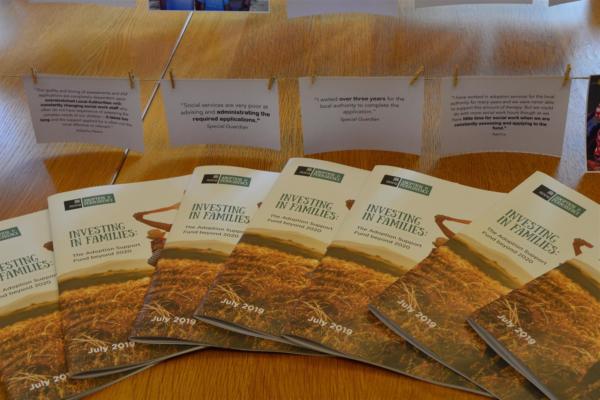As ever in the news, headline topics go in cycles. I’m sure we all remember when the refugee crisis dominated the headlines. But the tragic image of Alan Kurdi, whose drowned body washed up on the edges of the Mediterranean in 2015 can seem a distant memory as the decisions surrounding Brexit instead dominate our current headlines.
However, these two topics of refugee and asylum seeking, and our departure from the Europe Union are inextricably linked. In fact, a no-deal Brexit could have serious implications for asylum seeking children in the UK, particularly those seeking to be reunited with their families, as this recent article outlined.
Home for Good’s advocacy work is entirely focused on seeking to ensure the best possible outcomes for vulnerable children and young people. While there will be many views on the best Brexit outcome, we are committed to making sure that in undeniably uncertain times, the vulnerable are not overlooked.
What is the current system under the EU?
Back in 1990, 12 of the member states of the European Union drew up what became known as the Dublin Regulation. This has formed the crux of how EU member states have agreed to manage refugees arriving within their borders. The aim of the regulation is to establish which country is responsible for those seeking asylum under the Geneva Convention.
The main thing to note about the Dublin Regulation is that it agrees that the country in which an asylum seeker first applies for asylum in is responsible for their application. This stops people from applying to lots of different countries and means the responsibility for them cannot be passed around nation states like a hot potato.
According to the UNHCR, between June 2018 and June 2019 4,563 children were granted asylum in the UK.
As extensive research shows, the best place for children is in families. When it is safe, the first family they should be with is their kin. With that in mind, asylum seeking children and young people are returned to their families whenever it is safe and possible to do so.
In the year ending June 2019, 5,993 family reunion visas were issued to partners and children of those granted asylum or humanitarian protection in the UK (UNHCR statistics).
To reunite families involves cross-border coordination between the country where a family is living and the country where a child has been granted asylum. Currently in the UK this is managed under European Union guidelines.
How will Brexit affect this?
As with all the Brexit negotiations, this is largely unknown. But what we do know is that the current system is reliant upon membership of the EU and in order for the provision to be retained post-Brexit, it would need to be renegotiated. This means that the Government has now privately briefed the UNHCR and other NGOs involved in this process to explain that if a no-deal Brexit was to happen, we will no longer be party to the Dublin Regulation and reunifications will cease.
A UNHCR spokesperson said: “The UNHCR understands that if the UK leaves the EU without a deal, the Dublin Regulation, which allows for the transfer of asylum-seeking children and adults within the EU to join family members, will no longer apply to the UK.
“UNHCR urges the UK Government and its European partners to work together to ensure that appropriate arrangements remain in place for asylum seekers, refugees and stateless people.”
As with so many things, the UK will need to consider its future commitment and put a plan in place for what will happen post-Brexit for asylum-seeking children. Our hope is that the Government will prioritise family reunification and ensure there is a system in place to continue this.
What can we do for the children trying to be reunited with their family?
As Christians we are called to pray and Home for Good would encourage you to lift to God the vulnerable children displaced across the UK and the European Union.
Also, please pray for the Government as they manage Brexit, that they would keep those most vulnerable in mind as they make their decisions.
Finally, please pray for the charities and NGOs that are seeking to assist the Government – that their voice is heard and understood.
Secondly, if you wish to further amplify the voice of these vulnerable children, you can write a letter to your local MP to let them know that you are concerned about this particular issue.
We would recommend that you ask them to call on the Government to work with European partners to ensure that the UK is hospitable to the plight of separated children and retains a provision for reunifications to take place, regardless of the outcomes of Brexit.











